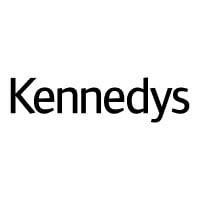

General counsel | CNA Hardy



Camilla Harries
General counsel | CNA Hardy
Team size: 21
What are the key projects that you have been involved in over the past 12 months?
This is a particularly tricky question to answer as I have only held the role of General Counsel for a little over six months. However, while this might seem a short tenure, it has been an intense and rewarding period of transition, learning, and leadership. My priority has been my team, their happiness and mapping out our future together and tying this in with the company’s long-term strategy.
I inherited a team that had experienced significant disruption, yet I was fortunate to find a group of highly capable lawyers and compliance professionals who were not only technically excellent but also deeply embedded in the business. Their resilience and commitment provided a strong foundation from which I could begin to lead.
I have approached the regulatory landscape as an area of particular focus, recognising its critical role in shaping how we operate. With a solid foundation in our regulatory obligations, I have concentrated on how these intersect with our commercial objectives. This has involved deepening my engagement with the relevant frameworks, identifying areas of potential exposure, and ensuring that both my team and the wider business feel supported and confident in navigating regulatory complexity.
A significant part of my role has been about listening, understanding the internal dynamics, building trust, and ensuring that the legal and compliance function is seen as a strategic partner. I have worked to reassure the team and stakeholders that they have what they need, when they need it, and that we are aligned in our goals.
This role demands constant juggling, balancing strategic oversight with operational detail, managing risk while enabling business growth, and being present for the team while also looking ahead. It’s not a 9–5 job; it’s a role that stays with you, that challenges you at unexpected moments, and that requires both resilience and adaptability.
What excites me most is that this isn’t a static role. It evolves daily, and with that comes the opportunity to make a real impact. Whether it’s responding to regulatory developments, supporting business-critical decisions, or mentoring team members, I have found that the moments of pressure are often where we prove our value. In short, while I may be relatively new in post, the past six months have been defined by purposeful engagement, strategic focus, and a commitment to building on the strengths of an already excellent team.
How do you approach managing legal aspects during periods of instability or crises, and how does your legal strategy align with the broader business strategy to ensure the organisation’s resilience?
As General Counsel, my approach to managing legal aspects during periods of instability is grounded in calm leadership, strategic alignment, and team resilience. In times of crisis — whether regulatory, reputational, geopolitical, or operational — our legal function must be the organisation’s safe harbour: a source of clarity, steadiness, and trust.
Central to this is cultivating a legal team that is not only technically excellent, but also emotionally intelligent, well-trained, and tightly knit. With a team of 20, I prioritise wellbeing, collaboration, and continuous development. A happy and supported team is an effective team, especially when the stakes are high. We invest in training, scenario planning, and cross-border coordination to ensure we can respond swiftly and cohesively, regardless of the nature or location of the crisis.
Our legal strategy is designed to align seamlessly with the broader business strategy. We work closely with executive leadership and operational teams to understand commercial priorities and risk appetite, ensuring our advice is not only legally sound but commercially pragmatic. During instability, this alignment becomes even more critical: we help the business navigate uncertainty while maintaining continuity, protecting reputation, and preserving stakeholder trust.
Communication is a critical pillar of our crisis response. With leadership, it requires clarity, courage, and diplomacy, balancing legal realities with strategic imperatives. These conversations can be complex, especially when decisions must be made quickly under pressure. My team’s role is to provide grounded, risk-aware guidance that enables informed choices. Across the wider business, while leadership sets the tone, legal must often act as the guide, translating complex issues into accessible, actionable advice. We strike a careful balance: being visible and reassuring without overwhelming and ensuring that our support empowers rather than alarms.
Importantly, we recognise that business-as-usual must continue even in times of disruption. My team is structured to provide agile support across all functions, balancing urgent crisis response with ongoing legal needs. This dual focus ensures that while we manage the extraordinary, we do not neglect the essential.
Internally, we are visible, approachable, and proactive. We communicate clearly and calmly, helping colleagues feel supported and informed. Externally, we engage with regulators, partners, and stakeholders with transparency and professionalism, reinforcing the organisation’s credibility and resilience.
Ultimately, my team’s role in a crisis is not just to manage legal risk: it is to enable the business to emerge stronger. By fostering a culture of preparedness, empathy, and strategic foresight, my goal is to ensure my legal function is not only a protector but a partner in resilience.
What do you think are the most important attributes for a modern in-house counsel to possess?
Hand in hand with technical excellence, the most effective modern in-house counsel must bring a broader set of attributes to the table, ones that reflect the evolving expectations of legal teams as true business partners.
Commerciality is paramount. Legal advice must be grounded in the realities of the business. This means understanding the commercial drivers behind decisions, anticipating how legal risks intersect with operational priorities, and offering solutions that enable progress rather than stall it. The most effective in-house counsel are those who can translate complex legal issues into actionable, business-friendly guidance that supports growth and innovation.
Equally important is empathy. Legal teams often engage with colleagues during high-stakes or stressful moments, whether it’s navigating a dispute, managing a crisis, or closing a critical deal. Demonstrating empathy fosters trust and strengthens relationships across the organisation. It also enhances the ability to tailor advice to the needs and pressures of different stakeholders, from frontline teams to the boardroom.
Approachability underpins both commerciality and empathy. If colleagues hesitate to engage legal early, risks can escalate. A modern in-house counsel must be seen as a collaborative, accessible partner — someone who welcomes questions, encourages open dialogue, and creates a safe space for discussion. This not only improves legal outcomes, but also embeds a culture of compliance and ethical decision-making throughout the business.
Ultimately, the most impactful in-house lawyers are those who blend legal expertise with business insight, emotional intelligence, and a genuine commitment to partnership. They are not just legal advisors: they are enablers of smart, sustainable decision-making.
I endeavour to embrace these qualities in my everyday work, striving to be a trusted, approachable partner who brings both legal rigour and commercial pragmatism to every conversation.